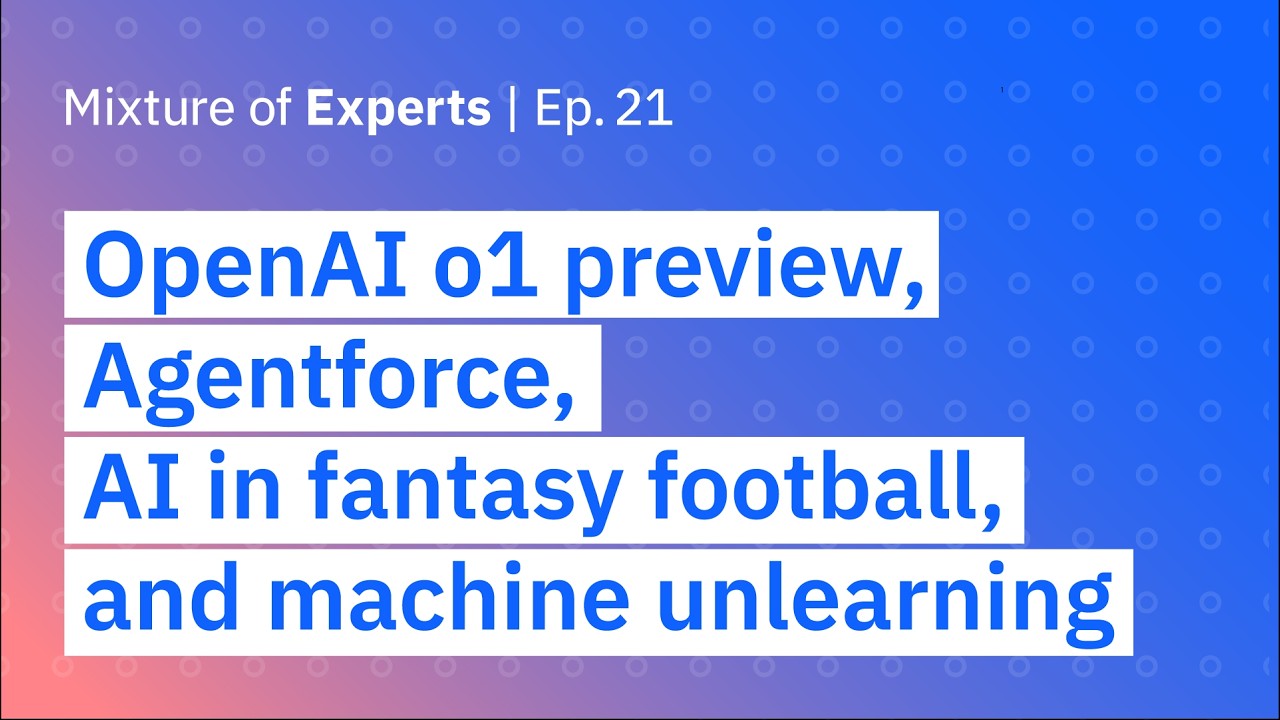The panel discusses OpenAI’s o1 Preview model, “Strawberry,” highlighting its advancements in reasoning capabilities through chain of thought and reinforcement learning, while emphasizing the importance of safety and alignment in AI systems. They also explore the potential of AI in personalization for applications like fantasy football and the concept of machine unlearning to enhance adaptability and security in AI models.
In the latest discussion on AI advancements, the panel, featuring experts Bryan Casey, Nathalie Baracaldo, Aaron Baughman, and Chris Hay, delves into the recent release of OpenAI’s o1 Preview model, dubbed “Strawberry.” The conversation begins with a hot take on whether the model lived up to the hype. The panelists express excitement about the model’s introduction of chain of thought and reinforcement learning techniques, which enhance its reasoning capabilities. They highlight the significance of these advancements in making AI systems more introspective and capable of self-education, allowing for improved performance over time.
The panelists explore the implications of the new model’s capabilities, particularly in terms of safety and alignment. Nathalie emphasizes the importance of introspection in AI, noting that the model’s ability to explain its reasoning can help address concerns about its decision-making processes. The discussion touches on the potential risks associated with AI, including cascading errors and hallucinations, and the need for robust safety measures as AI systems become more complex. The experts agree that while the model shows promise, ongoing scrutiny and improvement in safety metrics are essential.
As the conversation shifts to the concept of agents as a service, the panelists discuss the potential for multi-agent collaboration in various applications. They draw parallels between the rise of software as a service (SaaS) and the emerging trend of agents operating in teams to perform tasks. The experts predict that this shift will lead to the creation of agent marketplaces, where users can access specialized agents for specific tasks, thereby transforming industries and enhancing productivity.
The discussion also highlights the role of AI in personalization, particularly in the context of fantasy football. Aaron shares insights from IBM’s partnership with ESPN, which has developed a platform that leverages generative AI to provide personalized insights and recommendations for fantasy football managers. The panelists discuss the challenges of scaling personalization efforts and the innovative approaches taken to deliver tailored content to millions of users, emphasizing the importance of understanding user preferences and behaviors.
Finally, the panel delves into the concept of machine unlearning, which allows AI models to forget specific data points or biases after training. Nathalie explains how this technique can address issues such as toxicity, data poisoning, and copyright concerns, making AI systems more adaptable and secure. The experts agree that as AI technology evolves, the ability to manage and refine models through techniques like unlearning will become increasingly important, paving the way for more responsible and effective AI applications in various domains.
